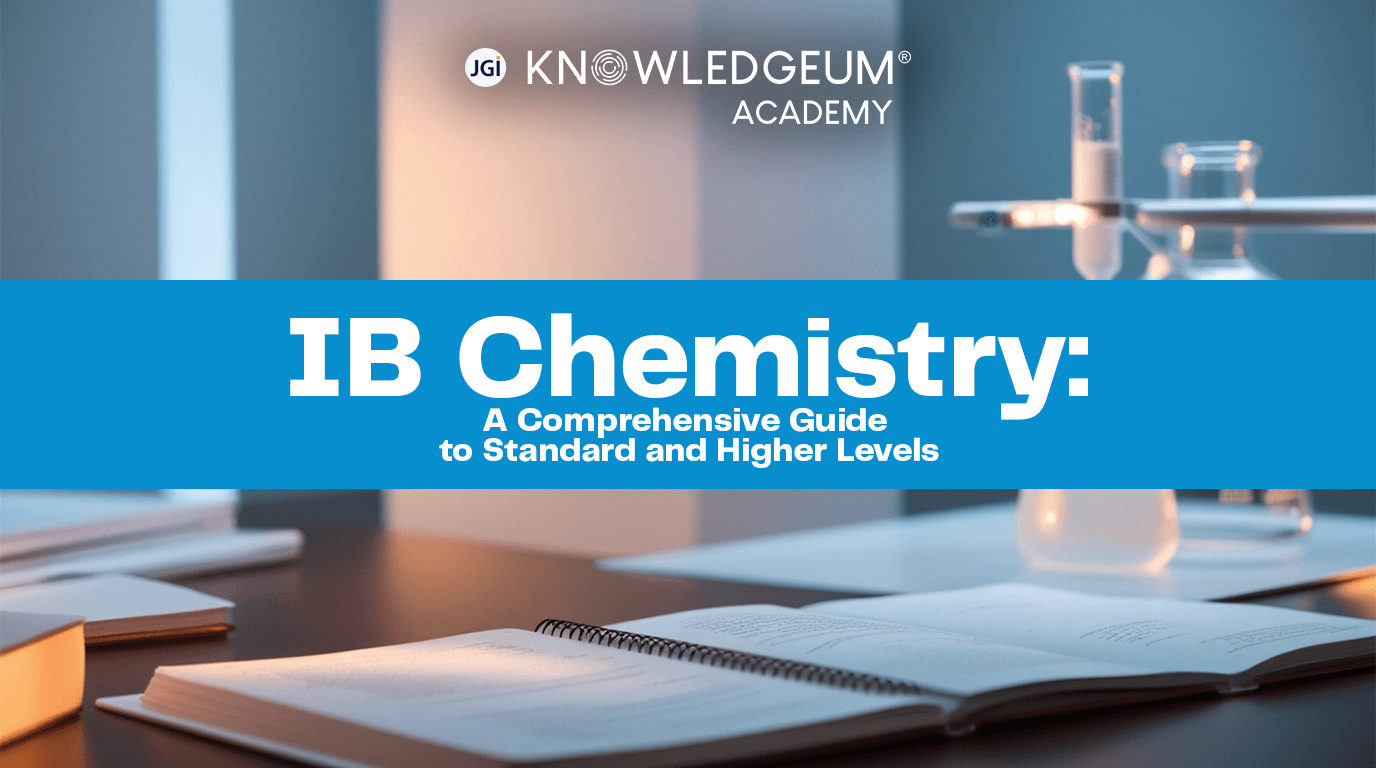IB Chemistry: A Comprehensive Guide to Standard and Higher Levels

The International Baccalaureate (IB) Chemistry programme offers learners a rigorous and engaging exploration of the chemical world. Whether you're considering the Standard Level (SL) or Higher Level (HL) course, this guide will provide you with essential information to help you navigate your studies and make informed decisions.
Course Overview
Standard Level (SL)
The SL course is designed for learners with a general interest in chemistry. It covers fundamental concepts and provides a broad understanding of chemical principles.
Higher Level (HL)
The HL course is more comprehensive and suitable for learners who have a keen interest in chemistry or plan to pursue chemistry-related fields at university.
Curriculum Structure
Both SL and HL courses share a common core, with HL learners studying additional topics in greater depth.
Core Topics (SL and HL)
- Stoichiometric relationships
- Atomic structure
- Periodicity
- Chemical bonding and structure
- Energetics/thermochemistry
- Chemical kinetics
- Equilibrium
- Acids and bases
- Redox processes
- Organic chemistry
- Measurement and data processing
Additional Higher Level (AHL) Topics
- Atomic structure
- The periodic table - the transition metals
- Chemical bonding and structure
- Energetics/thermochemistry
- Chemical kinetics
- Equilibrium
- Acids and bases
- Redox processes
- Organic chemistry
- Measurement and analysis
Option Topics (One of the following for both SL and HL)
A. Materials B. Biochemistry C. Energy D. Medicinal chemistry
Practical Work
Internal Assessment (IA)
Both SL and HL learners complete an individual investigation, accounting for 20% of the final grade. This project allows learners to demonstrate their understanding of scientific methodology and apply their knowledge to a real-world problem.
Group 4 Project
A collaborative activity where learners from different Group 4 subjects (Biology, Chemistry, Physics, and Computer Science) work together on a scientific or technological topic.
Assessment
Standard Level (SL)
- External Assessment (80% of final grade)
- Paper 1: Multiple choice questions (20%)
- Paper 2: Short answer and extended response questions (40%)
- Paper 3: Questions on core and option topics (20%)
- Internal Assessment (20% of final grade)
- Individual investigation
Higher Level (HL)
- External Assessment (80% of final grade)
- Paper 1: Multiple choice questions (20%)
- Paper 2: Short answer and extended response questions (36%)
- Paper 3: Questions on core, AHL, and option topics (24%)
- Internal Assessment (20% of final grade)
- Individual investigation
Key Skills Developed
- Critical thinking and analysis
- Scientific inquiry and research
- Laboratory techniques and safety
- Data interpretation and presentation
- Problem-solving and application of knowledge
Choosing Between SL and HL
When deciding between SL and HL, consider the following factors:
- Your interest in chemistry
- Your aptitude for science and maths
- Your future academic and career plans
- The overall balance of your IB course load
Career Opportunities
An IB Chemistry qualification can lead to various career paths, including:
- Chemical engineering
- Pharmaceutical research
- Environmental science
- Materials science
- Forensic science
- Medicine and healthcare
- Food science and technology
Study Tips for Success
- Develop strong mathematical skills
- Practice problem-solving regularly
- Engage actively in laboratory work
- Create and use summary notes and mind maps
- Utilise past papers and mark schemes for exam preparation
- Collaborate with classmates on challenging topics
- Seek help from your teacher when needed
Frequently Asked Questions (FAQs)
Q1: What's the main difference between SL and HL Chemistry?
A1: The primary differences are the depth of content and the amount of material covered. HL includes additional topics and goes into greater detail on shared topics. HL also requires more mathematical proficiency and typically involves more challenging exam questions.
Q2: How much maths is involved in IB Chemistry?
A2: Both SL and HL require a good grasp of mathematics, particularly algebra. HL learners should be comfortable with more advanced mathematical concepts, including logarithms and basic calculus, as these are often applied in topics like chemical kinetics and thermodynamics.
Q3: Is prior chemistry knowledge necessary for taking IB Chemistry?
A3: While prior knowledge can be beneficial, it's not strictly necessary, especially for SL. However, learners considering HL may find it advantageous to have some background in chemistry. Many schools offer preparatory courses or recommend specific prerequisites.
Q4: How much lab work is involved in IB Chemistry?
A4: Both SL and HL courses involve significant practical work. Learners typically spend about 40 hours (SL) or 60 hours (HL) on practical activities, including experiments, data collection, and analysis. This hands-on experience is crucial for developing laboratory skills and understanding theoretical concepts in practice.
Q5: How does IB Chemistry compare to A-level Chemistry?
A5: While both are rigorous pre-university qualifications, IB Chemistry offers a more holistic approach with its focus on international perspectives and the theory of knowledge. IB also places more emphasis on independent research through the Internal Assessment. A-level Chemistry may cover some topics in more depth, but IB Chemistry, especially at HL, provides excellent preparation for university studies.
Conclusion
IB Chemistry, whether at Standard or Higher Level, offers learners a challenging and rewarding exploration of the chemical world. The programme not only builds a strong foundation in chemical principles but also develops critical thinking, research, and practical skills that are valuable in many academic and professional fields.
When choosing between SL and HL, consider your interests, strengths, and future plans. Both levels provide excellent preparation for further studies, with HL offering a more in-depth experience suitable for those considering chemistry-related careers.
Remember, success in IB Chemistry requires dedication, curiosity, and consistent effort. Embrace the challenges, engage actively in practical work, and don't hesitate to seek support when needed. With the right approach, you'll find IB Chemistry to be an enriching and valuable component of your IB Diploma journey.




